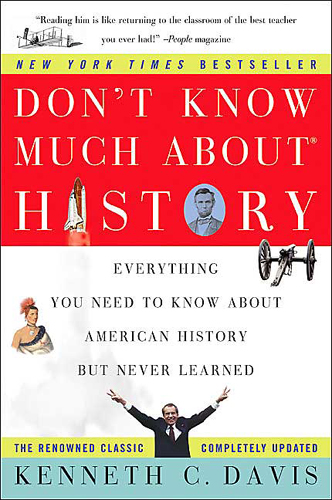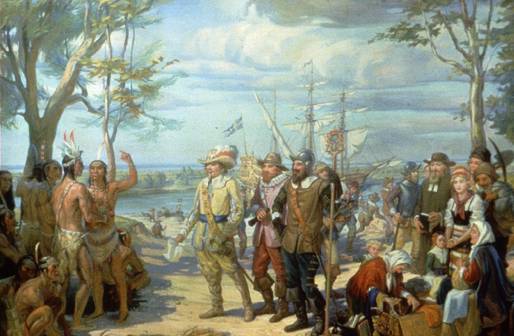- HubPages»
- Books, Literature, and Writing»
- Books & Novels»
- Nonfiction
Don't Know Much About History?

Starting from the early discovery of America all the way up to the present day Bush administration, Kenneth C. Davis examines the history of the United States in one of his bestselling books, “Don’t Know Much About History: Everything You Need To Know About American History But Never Learned”. In the nine chapters of the book, Davis covers various topics of the history of the United States. Instead of writing the full history of the country, the book is divided into hundreds of questions in which many diverse topics of each era are discussed. For each question the author gives a detailed answer which varies from question to question. The response to each question can simply provide a straight forward answer or it can give the reader different explanations, perspectives, or possibilities for the inquiry.

Early in the book, Davis explains that his main reason for writing it is to show the real picture of history, as he states that, “Our historical sense is frequently skewed, skewered, or plain screwed up by myths and misconceptions”. This is often seen by the false ideas that are presented in pop culture which confuse people’s historical knowledge. Occasionally, an intriguing historical film or TV program come along that captivate people’s attention which is what Kenneth Davis attempts to do in his book. Davis goes over the history of the United States and at the same time makes it interesting by responding to questions such as, “‘Who started the slave trade?’, ‘Why was there a war with Mexico?’, and ‘What did Roosevelt know about a Japanese attack, and when did he know it?’”.


An important aspect of the book was the deep investigation that it gives for each of the questions. Throughout the novel, both major and minor events in the history of the United States are analyzed for a solution. Answers for each question vary from a straightforward answer to the possibility of a conspiracy. In the question, “Who were the witches of Salem?”, for example, the history of the incident is traced from its origin all the way up to the trials themselves. Questions such as the one regarding the John F. Kennedy assassination often lead to the theory of a conspiracy. Yet other questions like, “Did the United State have to drop atomic bombs on Hiroshima and Nagasaki?” try to analyze the situation with “what if…” scenarios. With this deep examination of history, the reader is able to understand many of the happenings in the nation’s history as well as the reason for their occurrence and how they affected the course of events.

The information given by this book can be a review to some but a revelation to others. Even though everyone learns about history at one point or another, they never learn everything there is to know about it. In the same way, the information given in this book doesn’t go over every single event in the history of the United States but instead serves as a supplement to what one already knows or doesn’t know. There are many interesting facts in the book such as how the new world got its name (America) and how Peter Minuit paid natives $24 in today’s currency for the island of Manhattan. Other facts can be revealing or even shocking to some like learning about the type of person that Christopher Columbus really was or how European settlers brutally destroyed the natives for their land. In addition to questions and answers, there are also many quotes of famous people from each time period which provide an accurate account of what was happening at the time. Furthermore a timeline for major wars is also available as well as several appendices that supplement the reading.

Kenneth Davis does a superb job when writing this book as he recounts history with in-depth facts and astounding information. Davis has a unique style in writing this book which is what accounts for his success. Unlike history textbooks that express no emotion in their writing, Davis puts a little of his attitude into the book which makes the reader feel as if though they were being taught by their favorite teacher. Composed of questions and answers, quotes from well known people in history, timelines of major events, and a sense of human emotion, this book has a high level of interest which makes learning history a whole new experience for both novices and experts alike. After reading this book, I have come to realize that history is always full of mysteries which are often forgotten or never told and that learning history can be enjoyable.







